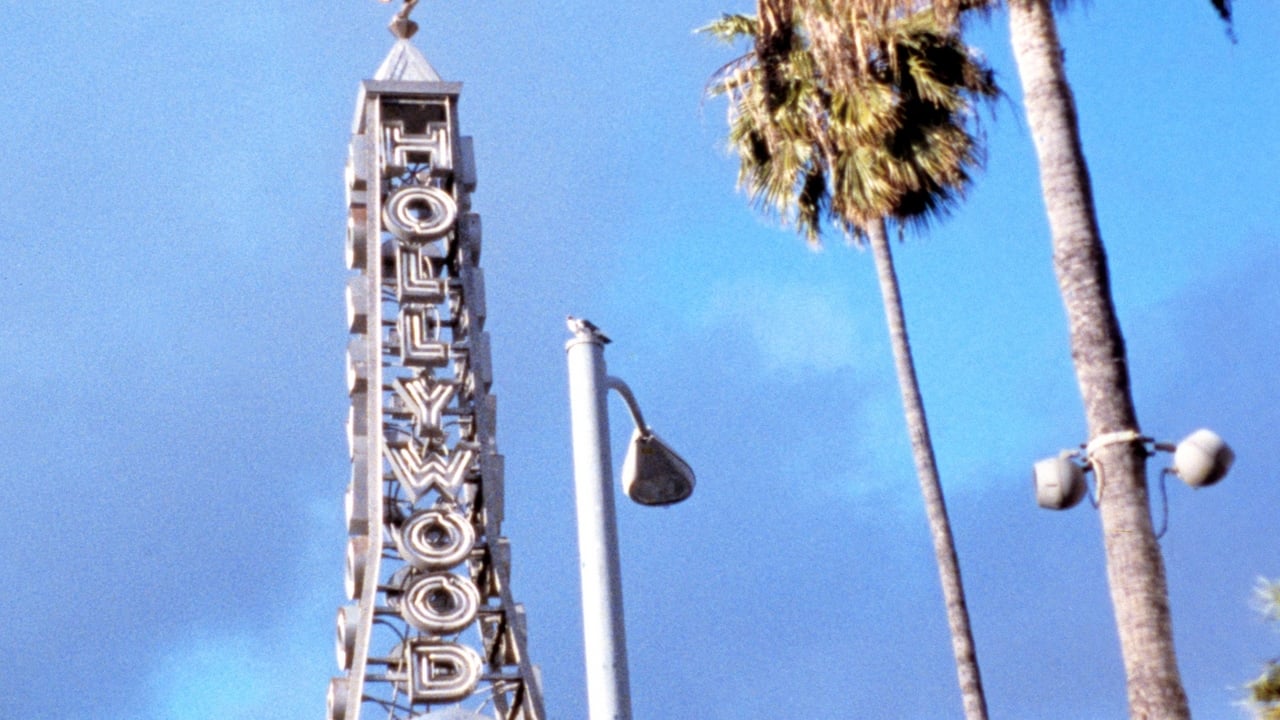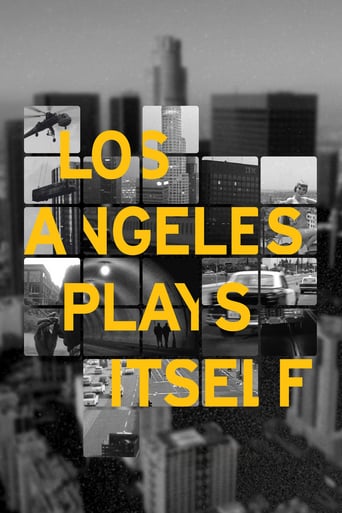

Save your money for something good and enjoyable
... View MoreIt was OK. I don't see why everyone loves it so much. It wasn't very smart or deep or well-directed.
... View MoreIt’s not bad or unwatchable but despite the amplitude of the spectacle, the end result is underwhelming.
... View MoreThis film is so real. It treats its characters with so much care and sensitivity.
... View MoreWhat I found most interesting about this movie is how starkly it showed that we all live in different worlds. I loved the movie, the way it was structured, what it focused on. But at the end of the day, the director's LA is not my LA (starting from trivial things like his assertion that the term LA is an insult). For example: his LA says nothing about trees, whereas one of the things I try to point out to visitors is how many trees we have, all over the city, vastly more than you'd expect, of great variety. My LA extends eastward almost to Palmdale, his runs from the coast to about highway 110. My LA is fascinated by man's accomplishments, from the cluster of antennas (and the observatory) on Mount Wilson, to the traps in the San Gabriel mountains preventing landslides, to the fact that the freeways work as well as they do, to the massive water projects keeping us all going. His LA is uninterested in the control of nature. My LA loves the fact that material items are so cheap, whether you're looking at any of the masses of malls, or buying second hand in any of the masses of Goodwill stores. He doesn't see the cheap material items, rather the expensive no-materials (rent, medical, education, etc). My LA is interested in how many educational establishments we have, of such variety; his LA does not even mention these institutions. This is not to criticize him or the movie --- the world is huge and none of us can know more than a tiny part of it. It is simply to point out that LA is likewise huge, and the perspectives he gives, while part of the story are far from the whole story, from the whole undiscussed issue of teenager movies and the portrayal of LA high schools, to the complete lack of reference to the LA Arboretum or Huntington Gardens (both locations used in so many movies).(Yeah yeah, you can argue that he is talking about Los Angeles city, not LA metro, but come on. That's like snobbish New Yorkers insisting that Manhattan is the whole of NYC. It's a blinkered, empty way to live your life.)If you're not a local, come visit and see for yourself. The good things he says about it are true --- there is so much beauty in the whole metro --- and many of the bad things from police to racism have (touch wood) been resolved or at least improved and are improving.
... View MoreLengthy (2 hours and 50 minutes) though absorbing and intelligent documentary on Los Angeles and how the city has been reflected in the movies (its scandals, its crimes, its mob connections, its architecture, etc.). Written and directed by Thom Andersen, with dry, non-showy narration by Encke King, this was a massive undertaking, yet the film and TV clips selected are enjoyable, giving us a past and present view of the city's streets and skyline, the seedy decay and the glamor of the privileged. The third act gets perhaps a touch heavy, when delineating the poverty-stricken by focusing on a trio of black dramas (1978's "Killer of Sheep", 1979's "Bush Mama" and 1983's "Bless Their Little Hearts"), but even then Andersen's text shows both grit and heart, sentimentality and cynicism. *** from ****
... View More"Los Angeles Plays Itself" is, first and foremost, an exhaustively-researched piece of work covering a staggering number of films shot in and depicting the city of Los Angeles. That is its chief asset, and it's a lot of fun seeing these movies in (sort of) a new light. It does expect the viewer to have some understanding of film theory, but my eyes were glued to the screen, wanting to see what movie Thom Anderson would examine next.But it's also a work that's made for those living in Los Angeles; a rallying cry for Angelenos over how the city is depicted by Hollywood (hint: he ain't too fond of filmmakers who choose well-trod locations to represent the outer communities . . . shows that they don't really know those places). I have no such connection to the city, so I wasn't eager to go with the man on such a scathing journey. And Andersen's negativity is magnified in Encke King's dour narration. I loved the terrific assemblage of clips, but I just wanted Andersen to get over himself. At almost three hours' runtime, I can understand why some wouldn't stick with this thing for the full ride. 5/10
... View MoreOkay, it's not "entertainment" as someone else complained. And I bet Thom Anderson is damned proud of that! On the other hand, if you are interested in film and American society, this is an endlessly absorbing piece of work, sort of a U.S. version of Chris Marker's provocative and witty dissection of the European left released here as "Grin Without a Cat." This is essay film-making at a very high level of intelligence. Anderson's thesis, wildly over simplified, has to do with the way that American filmmakers use the depiction of L.A. to promote a certain vision of urban society, of architectural modernism and of late capitalism. He draws on such a wide range of film clips -- everything from Samuel Fuller and Robert Aldrich to Michael Mann and Roman Polanski to obscure indie films of the 50s and 60s -- that this film will probably never be released on DVD simply because the rights clearances will take forever. I was particularly struck by his remarks on the cynicism of films like "Chinatown" as fueling a sense of social and political powerlessness among audiences and the comparison to some of the terrific Black indie films of the 60s and 70s, particularly Killer of Sheep.My only real quibble with the film, and it is not inconsiderable, is that it wasn't clear to me -- admittedly on one viewing -- how the two halves fit together either visually or in terms of the ideas.But what a pleasure it is to see a movie that HAS ideas, and expresses them with wit and savvy.
... View More